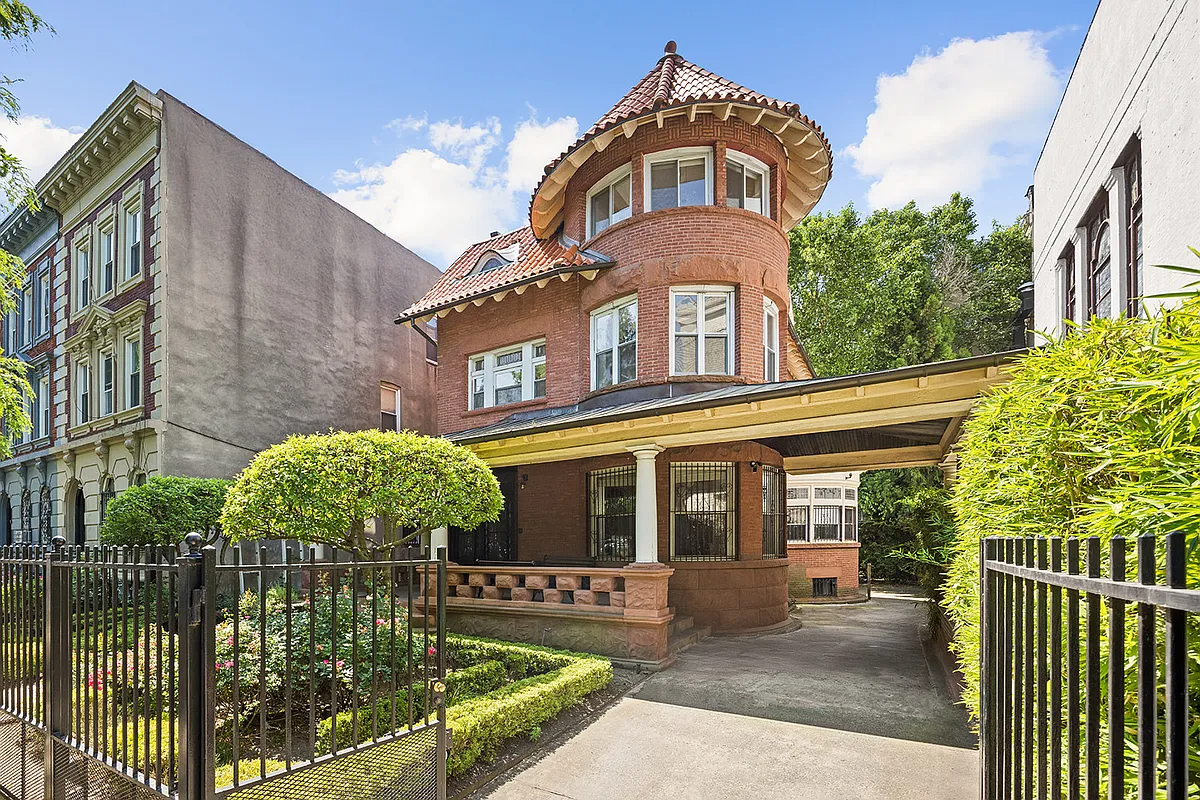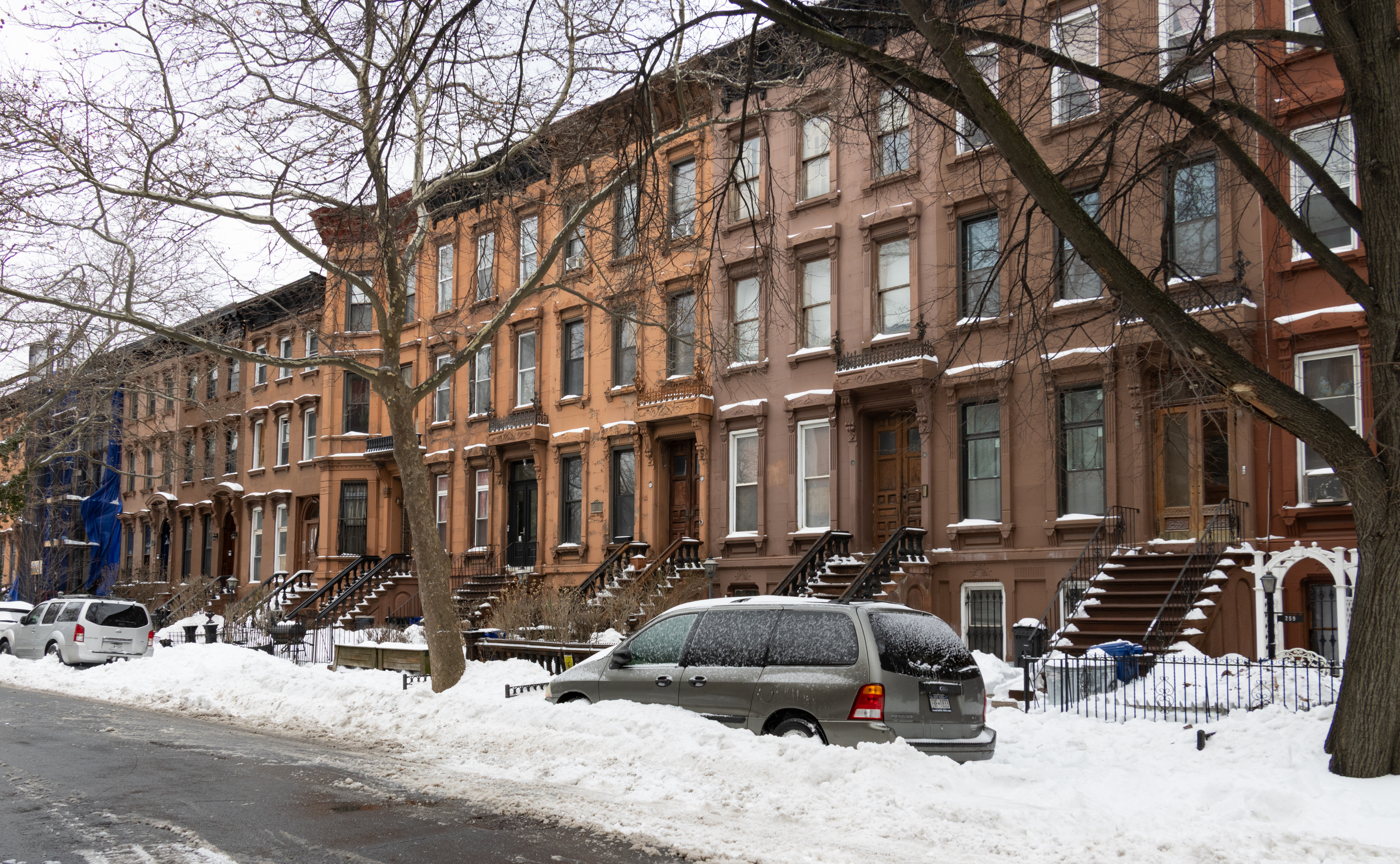Headed Back to the 1970s in Bed Stuy and Beyond?
“The economic crises of the early 1970s overwhelmed New York City,” writes James Doran in the British newspaper The Guardian. “The stock market crashed, oil prices plunged and unemployment soared.” Now that we’re rewriting that same scenario, will the same crime wave surge again? The article zeroes in on Bed-Stuy, the domain of Frank Serpico…


“The economic crises of the early 1970s overwhelmed New York City,” writes James Doran in the British newspaper The Guardian. “The stock market crashed, oil prices plunged and unemployment soared.” Now that we’re rewriting that same scenario, will the same crime wave surge again? The article zeroes in on Bed-Stuy, the domain of Frank Serpico who would be wowed and disoriented by the million-dollar brownstones of the neighborhood today. “Crime has dropped dramatically over 30 years and continues to show strong reductions,” in the area. But what will happen now that we’ve got a billion dollar budget gap and a 5,000-man reduction in the police department? “There were 455 murders in New York City in the year to 16 November compared with 429 in the same period last year, an increase of 6 per cent,” they write. “And this is just the beginning of New York’s woes. The slump is expected to take a big toll on a city which relies on the financial services sector for some 10 per cent of its overall tax revenue. Add to that the amount of money that is pumped into the economy by wealthy bankers and financial traders who until recently were buying mansions and luxury cars and eating at expensive restaurants with abandon, and it soon becomes obvious that New York City is bankrolled by Wall Street.” Commissioner Kelly told the City Council yesterday that it would be a real challenge to keep crime down. On the jump, a handy comparison of 1970 NYC and now.
New York Fears Return of Dark Days [The Guardian]
Photo by csamperezbedos.
1970s:
• Price of a subway ride – 30 cents in 1970 to 80 cents by 1979
• Price of a hot dog in Coney Island $1
• Top TV shows – All in the Family, Happy Days, Laverne and Shirley
• Millions move out to the suburbs in the great urban flight
• Economy so bad that 3,000 are arrested for looting during a blackout
2008:
• Price of a subway ride $2
• Price of a hot dog at Nathan’s in Coney Island $3.20
• Top TV Shows – Dancing with the Stars, American Idol, Heroes
• Millions move back to old city neighborhoods left derelict for a generation
• Economy so bad that mayor Michael Bloomberg demands a third term.





rob–that’s cool. I hope you are correct in your assessment. Would bode well for people being invested in their neighborhoods which is necessary for them to remain strong through down times.
fsrg–good points about people giving up on urban life. Hopefully some aspects of the new green consciousness will help the city from going to “seed” as it were. If people see the city as a cheaper, more environmentally sound place you may not see the money flight out of the city that we saw in the 60s and 70s. Who knows?
quote:
I wonder though if that level of internet awareness filters down to all levels of the urban populace.
it totally does. brownstoner, this blog and site, is a little bit upper crusty if you know what im saying. go on sites like city-data… lots of people on that message board post from the bronx and stuff and totally are very vested in their neighborhoods, etc. it’s totally weird visiting a site like this, curbed, then seeing people post on city-data where you have people from all over talking… you get posts like, talking about jobs for the department of sanitation, which areas of the bronx are relatively safe, just random stuff. believe me, people from every socioeconomic stratus are very hyper-aware of their neighborhoods these days… internet access is not just for the privileged few anymore.
*rob*
Less police presence will amount to more crime, but I don’t think that the white collar sector losing jobs will. The people that are committing probably 95% of the street crime are already unemployed and like it that way.
Maybe we can get the Law and Order “dun dun” sound too for the posts about crime.
Actually I believe crime – murder (the only truly reliable crime stat) in 1990, which is far far far away from the 70’s.
I could be wrong but I doubt newly unemployed Bankers and Brokers are going to be shooting people for dinner $.
The crime rate goes up if 1. we dedicate less resources to crime prevention and 2. If people begin to be less demanding on our officials regarding small offenses.
Since in 1970’s the genuine consensus was that urban living was over and that the suburbs was where ‘growth’ was – I think people including a lot of city dwellers were willing to accept more crime. Given the huge numbers of people who are now trapped (unable to sell/move) in apartments with families it will take alot longer (if ever) to see people “intellectually” give up on an urban lifestyle.
In short the demographic trends in NYC leading up to the 1970s just arent at play here. Obviously if 80% of the working people/families in NYC up and leave over the next decade and are replaced by undereducated, underemployed people (which is what happened from the 50’s-70’s in the outerboros) – THEN – you may be looking at a return to that type of crime, right now – relax – street crime is not the big problem.
you’re the one who’s naive travy. People are loathe to admit that police work is actually the cause of the downturn in crime. there will be more crime because of less police not because laid off construction and mta workers are suddenly roving the streets robbing people.
rob–that is an interesting point about the role of the internet in the fabric of the city. Certainly people know alot more about the people and neighborhoods around them now because of the internet. I wonder though if that level of internet awareness filters down to all levels of the urban populace.
Was Happy Days shot to a live audience? Wonder how many people Mr B would have to hire to create a live laugh track for us.